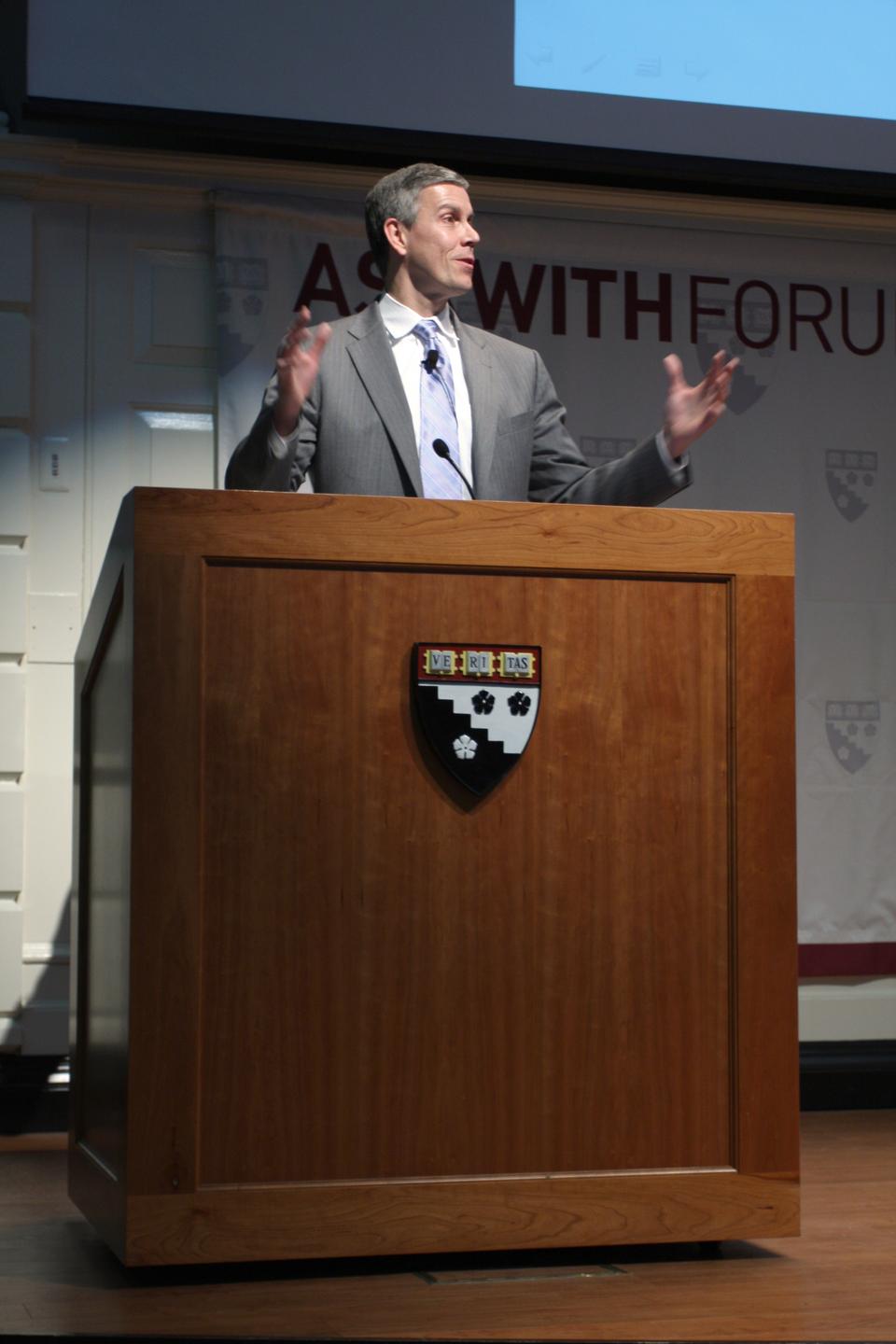
Five Questions with Arne S. Duncan '86
Fifteen Minutes sat down for five questions with U.S. Secretary of Education Arne S. Duncan ’86. Duncan was the co-captain of the men’s varsity basketball team and is now one of President Obama’s closest advisors. His controversial work on education reform has been making headlines across the country.
1. Fifteen Minutes: What do you think is the single biggest thing that a school or school district can do to improve education?
Arne S. Duncan '86: I wish there were one. There’s not just one. I think talent matters tremendously in attracting and retaining great teachers. Great principals, particularly in disadvantaged communities, are hugely important. I think great early childhood education is hugely important. And I think building a culture around college readiness for all students—college and career readiness—so that the goal is not just to graduate. The goal is some form of education beyond senior year of high school. Those would be at the top of my list. But you really have to have this cradle to career continuum.
2. FM: Do you think that pay incentives are a good way of making that happen?
ASD: I think as a piece of a much larger conversation about support and professional development and status and career ladders, changing the compensation system is important. By itself, it is not the issue. The biggest determinant of teacher success or longevity is actually their principals and their peers. Where you have a great principal who supports you and mentors you, those teachers stay. And where you have a bad principal, you could pay a teacher a million dollars and they won’t stay.
3. FM: What do you think you will have had to accomplish, in your time in Washington, for you to feel like you did everything you went there to do?
ASD: All our work—early childhood, K to 12 reform, higher ed.—all our work is towards one goal. The president has challenged us to lead the world in college graduation rates by 2020. We used to be first; we’re now sixteenth. There are all these countries that have passed us by, and so that’s how I want to be held accountable. Can we again lead the world in college graduation rates? If we do that, I think the benefits for families and communities in the country and our country’s economy are huge. If we continue to languish and have other countries out-educate us, we’re going to continue to be out-competed and continue to struggle. So that, for me, is the ultimate goal: to lead the world in college graduation rates.
4. FM: How involved is the president in what you do?
ASD: This is a deeply, deeply personal battle for him. He says all the time, “If I hadn’t had a great school and great teachers, who knows what would have happened?” And he’s been an amazing partner. We’re lucky we were able to work a lot together before we came to Washington—first when he was in the Illinois state legislature and then when he was an Illinois senator. We used to talk policy, we used to visit schools together, and he’s driven this country in just an amazingly remarkable way. I think no one would have predicted how far we would’ve come in the three years of his presidency.
5. FM: Have you been following the basektball team much? [At the time of this interview, the Crimson basketball team was ranked twenty-first in the nation.]
ASD: I’m so proud of what they’re doing and the program Coach Amaker is building. I got to a game last year that was really fun to see, and obviously they had a tough end to the season last year, but they’ve come back really strong.


